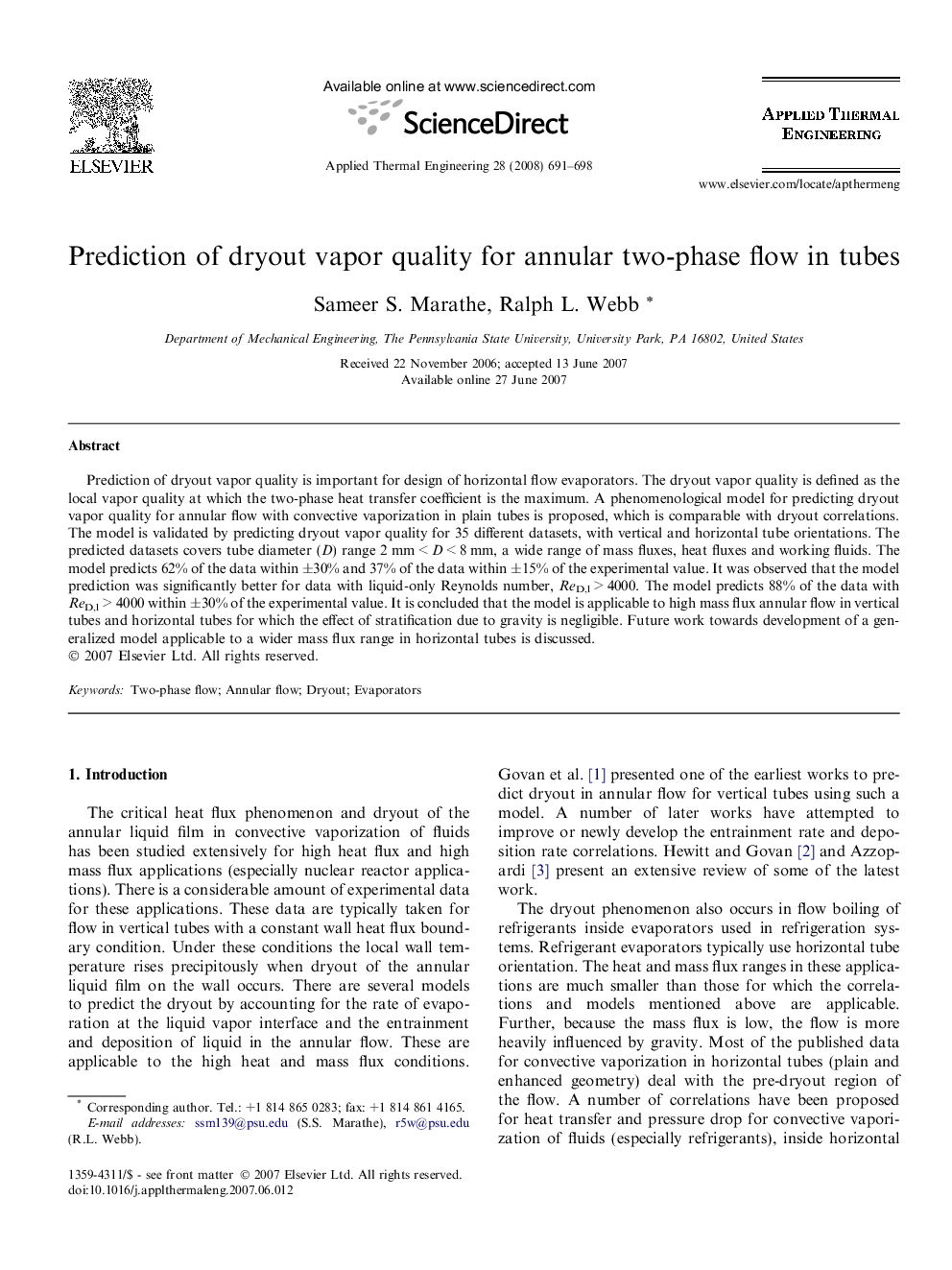| Article ID | Journal | Published Year | Pages | File Type |
|---|---|---|---|---|
| 649460 | Applied Thermal Engineering | 2008 | 8 Pages |
Prediction of dryout vapor quality is important for design of horizontal flow evaporators. The dryout vapor quality is defined as the local vapor quality at which the two-phase heat transfer coefficient is the maximum. A phenomenological model for predicting dryout vapor quality for annular flow with convective vaporization in plain tubes is proposed, which is comparable with dryout correlations. The model is validated by predicting dryout vapor quality for 35 different datasets, with vertical and horizontal tube orientations. The predicted datasets covers tube diameter (D) range 2 mm < D < 8 mm, a wide range of mass fluxes, heat fluxes and working fluids. The model predicts 62% of the data within ±30% and 37% of the data within ±15% of the experimental value. It was observed that the model prediction was significantly better for data with liquid-only Reynolds number, ReD,l > 4000. The model predicts 88% of the data with ReD,l > 4000 within ±30% of the experimental value. It is concluded that the model is applicable to high mass flux annular flow in vertical tubes and horizontal tubes for which the effect of stratification due to gravity is negligible. Future work towards development of a generalized model applicable to a wider mass flux range in horizontal tubes is discussed.
